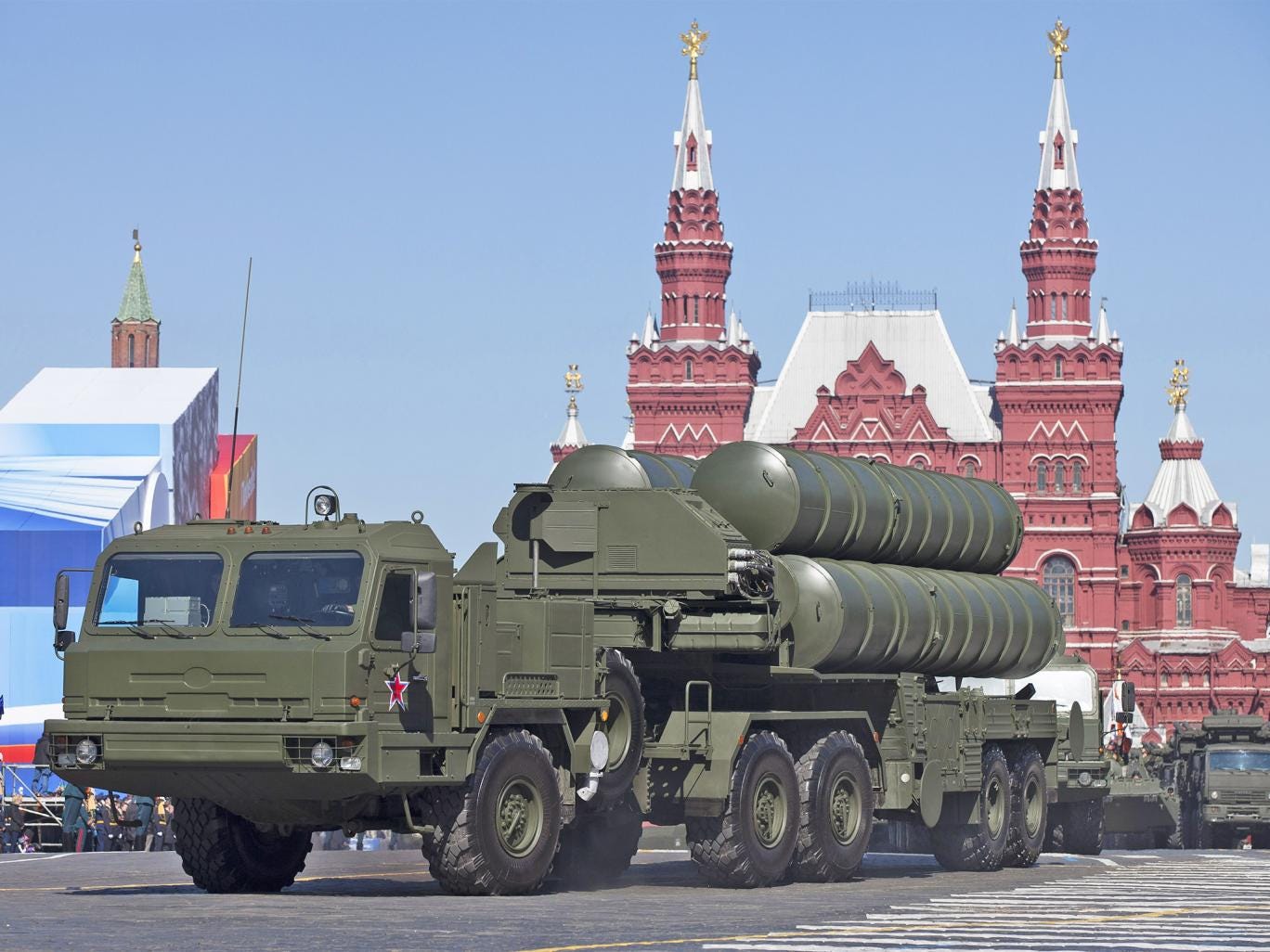
A Russian S-400 air defense missile system makes its way through Red Square during a military parade in Moscow. File photo AP.
The Turkish F-16 that shot down a Russian SU-24 attack plane last week near the Turkish-Syrian border has created an international incident that rivals with the first few chapters of any Tom Clancy novel. Air operations against ISIS and Syrian rebels in Syria has created a situation where Turkey, other NATO countries and Russia are all operating aircrafts in close proximity.
The greatest fear of NATO commanders was realized when Turkish authorities gave the green light for the F-16 to shoot down the SU-24, resulting in one pilot killed and other Russian soldiers possibly killed or injured while rescuing the second member of the two-man crew. Turkey, a NATO member state, would have the right to claim that an attack by Russia on Turkey is an attack on all NATO members, but considering the order to shoot down the SU-24 was ill conceived and the SU-24 was not a real threat to Turkey, NATO members would do well to tamp down the rhetoric against the grieved party who has lost a pilot and soldiers and never threatened Turkish security to any great measure.
The predictable response to the incident by Russian President Putin was to shun Turkish officials in international forums and openly claim that Turkey took aggressive actions against its aircraft in order to protect oil flows from ISIS-controlled territory into Turkey itself. Russia has recently been targeting ISIS oil resources in order to financially starve the terrorist organization that uses this resource to supply its military and resulting in human rights abuses and genocide against minority groups in the region. The lack of attention given to ISIS oil resources by NATO has given way to assumptions by Russia that Turkey took aggressive actions against Russia to protect the oil reserves.
Another theory is that Russia wants to take the lead in the region by targeting resources that keep ISIS afloat. Russia’s aggressive strikes appeal to those communities that want to stop mass murder of ethnic minorities in the region, disregarding the notion that attacking energy resources in Syria and Iraq may cause significant environmental damage. Whatever the reason, the actions by the Turkish F-16 against the Russian aircraft were not morally legitimate, even if legally it can be argued that Turkey may have had the right to take an aggressive stand against a Russian aircraft flying over its territory.
Years of discussions and sanctions blocking the sale of the S-300 anti-aircraft missile system to Iran ended a few months ago when Russia decided to finally sell the advanced missile system to Iran. Despite U.S. officials believing that the nuclear deal would block the sale for many years, Russian officials moved ahead swiftly after the agreement was signed to fulfill the S-300s order. In the aftermath of the incident with Turkey, the next generation of Russian surface-to-air missile that concerned U.S. officials for so many years is now being deployed in Syria. The effectiveness, range and crew of the newer S-400 “Triumph” missile will operate as a Russian air defense network in northern Syria, covering much of Syria and reaching into Turkey, Israel and even as far as Cyprus.
While NATO officials do not believe Russia will target NATO aircrafts, a recent decline in NATO sorties has taken place upon the announcement of the S-400 deployment. Anti-aircraft missile systems have become a major strategic asset ever since the Vietnam War, and allow the party that has control of the system to pick and choose how an air strategy can be applied, or halted in a given territory. With the S-400 radars able to view all air activity in Syria and Turkey, missiles could target and hit Turkish and NATO planes in Turkey itself.
Putin has decided to create an Iron Dome of his own, enveloping Turkish air squadrons and bases within the range of the S-400. Retaliation against Turkey and NATO has not taken place, but with the S-400 Triumph as part of the increased air defense over Russian and Syria aircrafts in the region, NATO will be motivated to ease tensions and perhaps re-consider NATO’s future obligations towards Turkey itself.